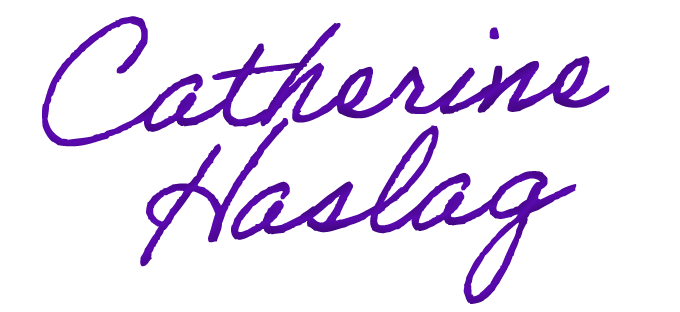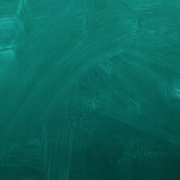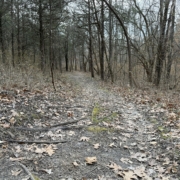Statement of Teaching Philosophy 2020
My teaching philosophy has evolved over my nearly 20 years of experience in education. Initially, it revolved around using different methods of instruction to reach students of varying learning styles. While I still practice this in the classes I teach, my vision of my role as an educator and my understanding of higher education has expanded and become more three-dimensional. Despite this evolution, my ultimate goal as an educator remains the same: I want to positively impact my students and help them develop the tools they need to succeed in their educational and career goals.
My current teaching philosophy has four components. 1) An effective teacher also needs to be a life-long learner and possess a growth mindset. 2) A faculty member at a community college is also an educational resource for the community. 3) A teacher is responsible for teaching students the fundamentals of chemistry and should also be an example of how to operate in a professional atmosphere and navigate life healthily. Finally, 4) Teaching is about helping students learn how to apply it and convincing them that the information you are teaching them is valuable to them in life.
Component #1: An effective teacher needs to be a life-long learner and possess a growth mindset. This means that I am my first and primary student. If I do not focus on my growth and seek out learning opportunities, I will not provide the best educational experience to my students. The more I learn educational best practices, current topics in science/chemistry, and other topics I find interesting, the better I can make connections between chemistry and the world and explain complex concepts to students. One of the ways I learn is through travel. My experiences abroad have exposed me to new cultures, allowing me to relate better and be open to the diverse population of students I teach. By remaining a life-long student, I grow my skills as an educator. I also demonstrate to students what it means to be a life-long learner, a trait most of the jobs of tomorrow require from the workforce.
Component #2: A community college is an educational resource for the community, not just the students who enroll in classes. Community college faculty are leaders in the academic community and a resource for other educators. I have tried to position myself as a professional resource for the Austin community by supporting the local elementary school science fairs as a judge, special award organizer, and leadership in the Science Fair Mentoring Project. Working with 3rd and 4th-grade students has improved my understanding of reaching my college students because I am challenged to create ways to explain scientific concepts to younger students. Working with the teachers in the elementary schools has also exposed me to new classroom management skills, many of which are transferable to my college classes. In addition, I can offer my expertise to other educators and students outside of those at the college. Working with other community educators has helped develop my educational skills and support my lifelong learning growth.
Component #3: I am responsible for teaching students the fundamentals of chemistry, but I am also an example of how to operate in a professional atmosphere and healthily navigate life. Riverland has identified that students need assistance building additional skills to help them succeed in college, which is why students are now required to take a first-year experience course. Students also lack basic communication skills, professional etiquette, study skills, and set and meet goals. I have incorporated these areas into my classes. I outline appropriate communication behavior in the syllabus and mirror it back to the students. I guide students in developing study techniques and strategies. I set boundaries and explain to students how to operate within them. For instance, while I don’t accept late assignments, students do have the option to complete extra credit in my classes. All the extra credit involves the students using campus resources, such as the Writing Center to have papers reviewed or tutoring services provided by the Student Success Center. If students miss an assignment for any reason, they still have the opportunity to make up the missed points. This helps students look for and utilize other options to meet their goals, a valuable tool in the real world as the path to success is often winding and does not proceed as one would expect it. I recently completed On-Course training to become part of the team of faculty who can teach the first-year experience class for incoming students. The information and skills I acquired from this training will also increase student success in my chemistry classes.
Component #4: Teaching is about helping students learn information and how to apply it and convincing them that the information you are teaching them is valuable to them in life. For the science-minded student, chemistry courses are exciting and challenging; for the non-science-minded student, chemistry classes can be a confusing and frustrating struggle. Learning chemistry can be overwhelming if a student’s math and problem-solving skills are not developed. I understand how important it is for an instructor to keep their audience in mind and approach chemistry topics from different directions to reach students of varying abilities, learning styles, interests, and cultural/educational backgrounds. As an instructor, I know that I need to present the material so that the students can understand, engage them, and help them relate to a challenging area of study. My teaching and life experiences have inspired me to prepare lessons that include a blend of information and application presented in an entertaining way that reinforces the material and helps to keep the student’s attention focused. I know that an engaged student is more likely to participate in class and gain something from experience.
The student’s responsibility in this relationship is to desire to learn, be willing to utilize available resources, and be open to new ideas. The relationship between student and educator can ultimately determine if an educational endeavor will be successful. Students can learn how to utilize resources if they come to class without the desire and openness to learning. Conversely, if the teacher doesn’t adequately prepare lessons or show a willingness to make their teaching methods more effective, learning can be complex. Great moments in teaching are when instructors see their students master information and techniques. I love watching students’ eyes light up as they suddenly understand a concept they struggled to master. I find it very rewarding to see my students succeed in their classes and develop an appreciation and understanding of chemistry.
I strive to help students develop critical thinking and problem-solving skills, ignite their desire for lifelong learning, and prepare them to function successfully in an information culture. I believe the purpose of education is to teach students how to find the information they need, understand unfamiliar concepts, and use the knowledge and understanding to make informed decisions in their lives and possibly the lives of others. Hopefully, the final product of all of this is students who appreciate and understand essential chemical concepts, have a clearer view of the big picture, and are, ultimately, better citizens of the earth.

 Created using Canva
Created using Canva Created using Canva
Created using Canva © 2025 Catherine Haslag, All Rights Reserved
© 2025 Catherine Haslag, All Rights Reserved Photo taken by Mark Okon and used through the Unsplashed License
Photo taken by Mark Okon and used through the Unsplashed License © 2026 Catherine Haslag, All Rights Reserved
© 2026 Catherine Haslag, All Rights Reserved © 2025 Catherine Haslag, All Rights Reserved
© 2025 Catherine Haslag, All Rights Reserved © 2025 Catherine Haslag, All Rights Reserved
© 2025 Catherine Haslag, All Rights Reserved Created using Canva
Created using Canva